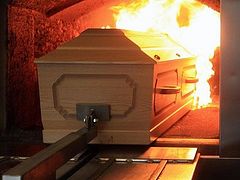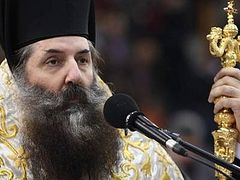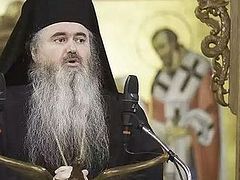Athens, March 14, 2019
Though cremation was legalized in Greece nearly 13 years ago, the traditionally-Orthodox nation has yet to see its first crematorium, as the movement has faced considerable opposition from the influential Orthodox Church which forbids cremation.
However, another significant step in the process towards cremation was taken recently as Greece’s Environment and Energy Minister Giorgios Stathakis signed a decision to allow the construction of the nation’s first crematorium in Athens, reports Keep Talking Greece.
Athens Mayor Giorgios Kaminis, who has been committed to building a crematorium in his city since 2014, tweeted that now the state will be able to fulfill its commitment to “upholding citizens’ rudimentary rights.” Atheist Prime Minister Alexis Tsipras hailed the decision as “one of the most important and necessary reforms,” according to the Guardian.
There is no word yet of when the project will begin or end on the city-owned plot in the Elaionas section of Athens. The bill to allow cremations was passed in 2006, and there have been occasional announcements that construction was coming, but nothing has yet materialized. Crematorium are seen as a solution to the nation’s overcrowded cemeteries, though the Orthodox Church remains staunchly opposed to the practice and does not celebrate funerals for those who have been cremated.
The cities of Thessaloniki and Patras have also consented to having a crematorium, though work there has been slow.
Several hierarchs of the Greek Church spoke out strongly when Patras made the decision in 2016 to open a crematorium, calling it “war against the Church.”
Metropolitan Justin of Kalamaria, commenting on the decision to open the crematorium, said: “Many claim that the Church should care for people’s souls only and leave the body alone. That is not true: the Church cares for the whole human being who is saved in his or her psychosomatic unity, gaining the Divine grace.
The body is holy and sacred for the Church, because it was created by God! The Lord Himself took this body, resurrected and ascended to the Heavens in it. Can there be a greater glory for the body?”
Metropolitan Chrysostomos of Patras emphasized the inconsistency of cremation with the teaching of the Orthodox Church: “God created man in His own image, as a psychosomatic unity. The union between the soul and the body is holy, and it is no coincidence that Apostle Paul calls our body ‘a temple of the Holy Spirit’… When separated from the soul, the body does not become a corpse, as is the case with dumb animals, but it becomes ‘relics’. Cremation of the dead demonstrates nihilism, while burial shows respect for the personality of the deceased… In the end, cremation of human bodies is a sign of lack of faith in resurrection.”
Follow us on Facebook!




